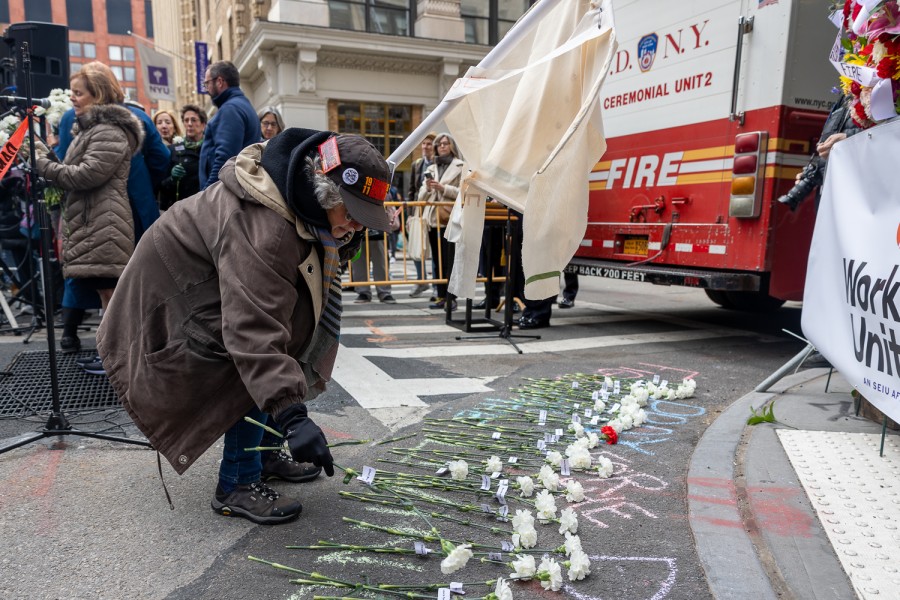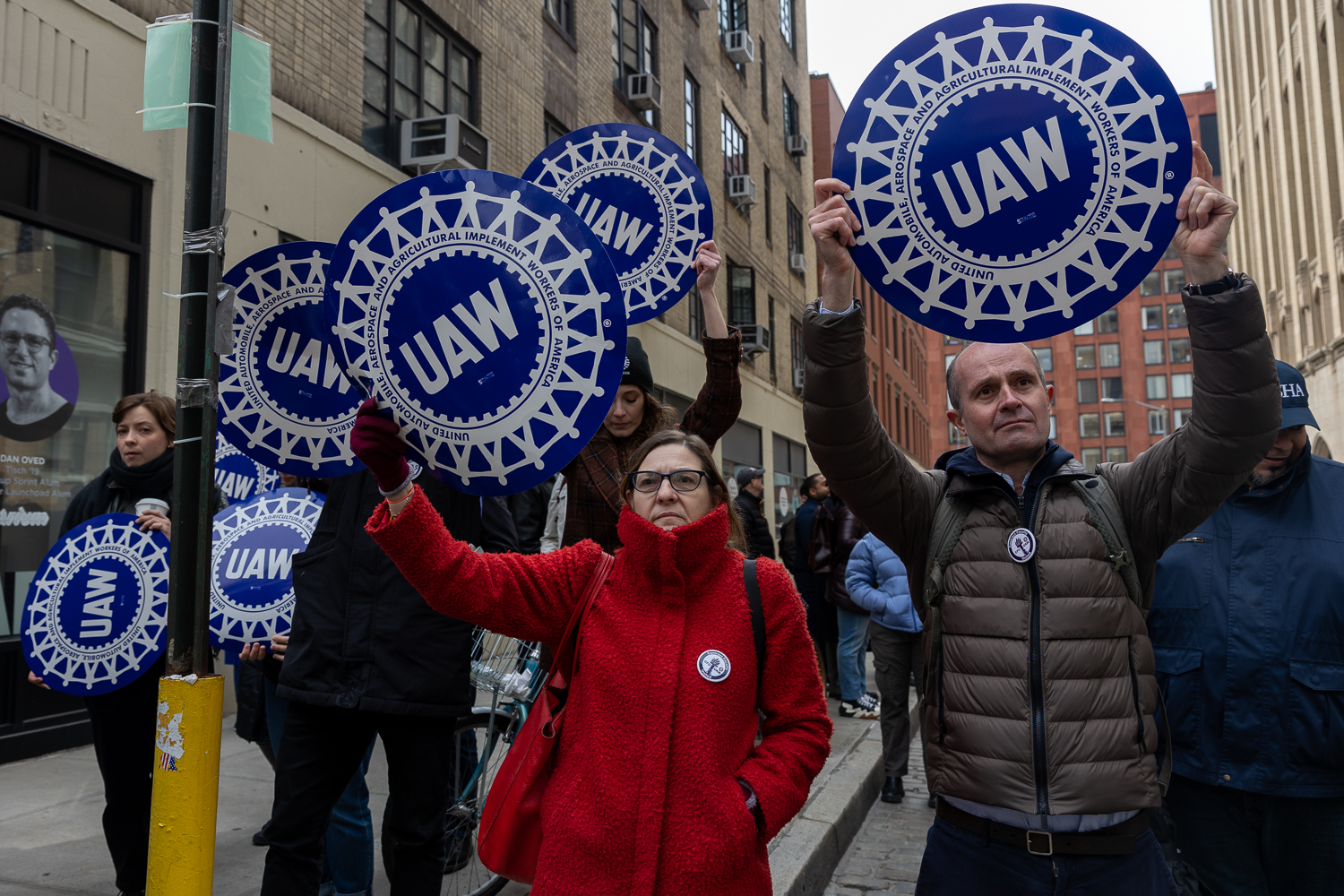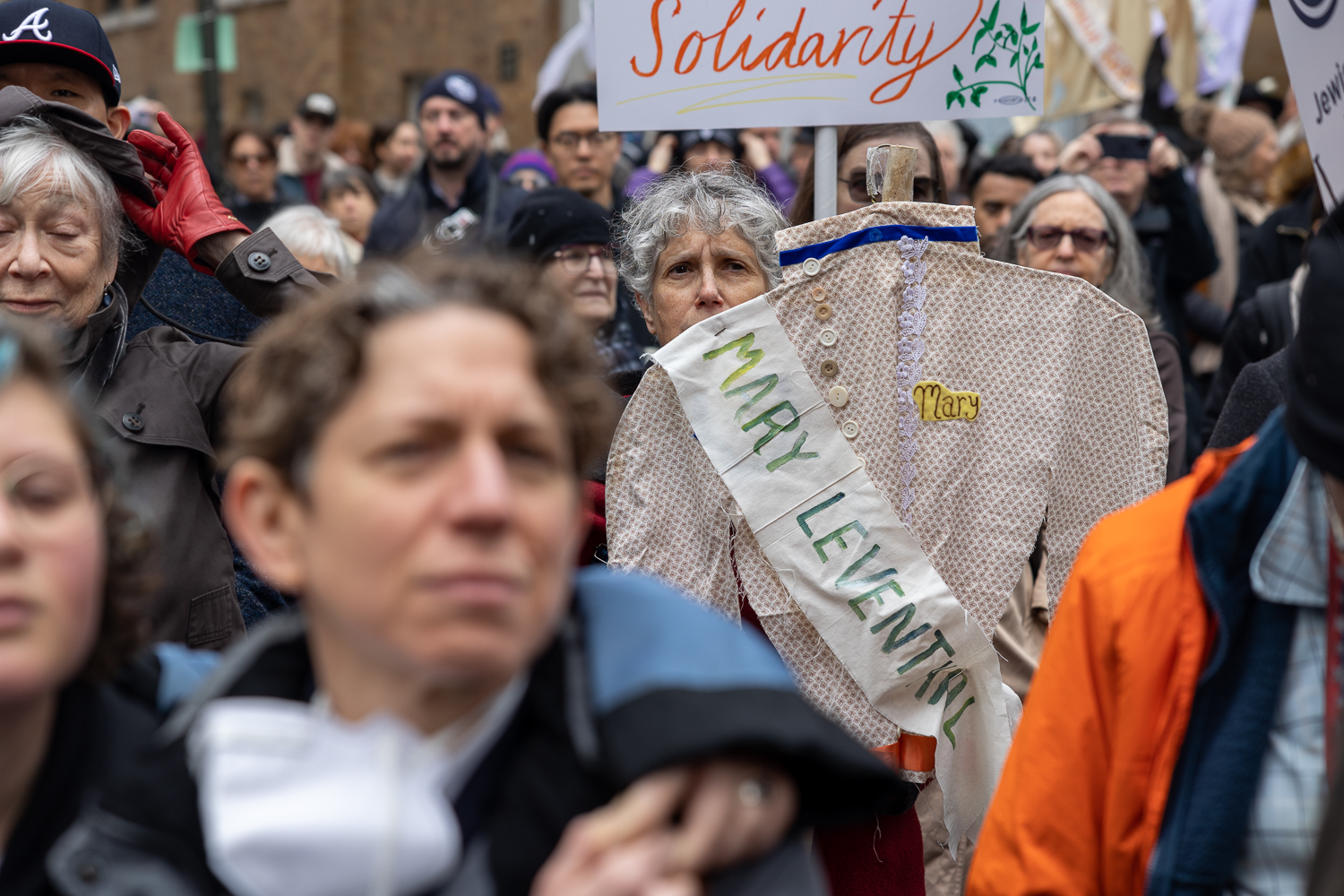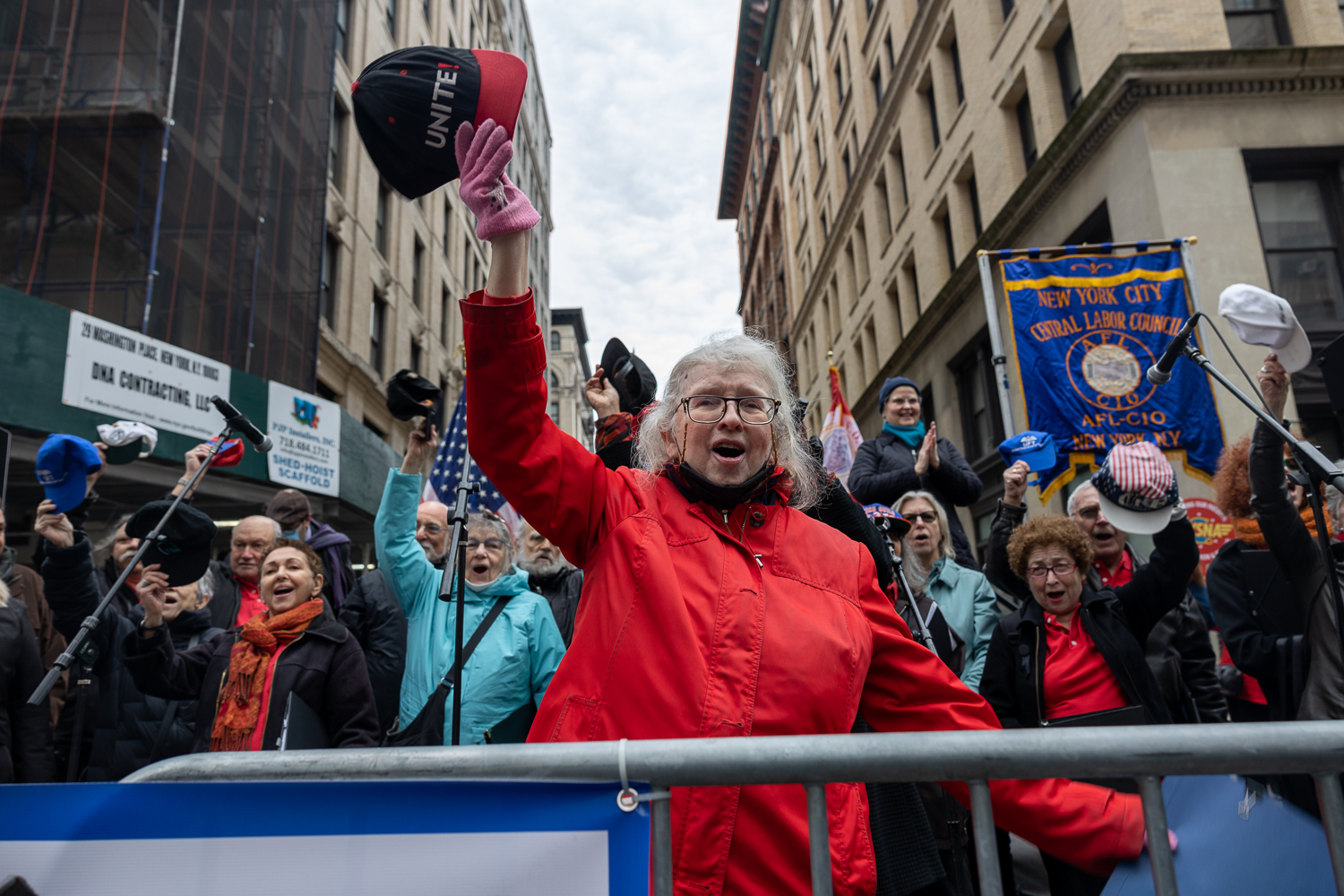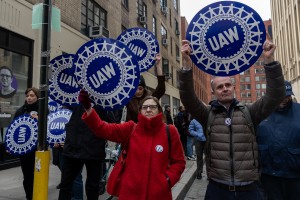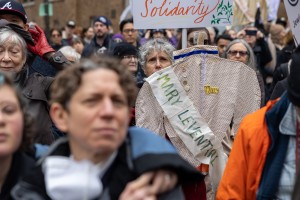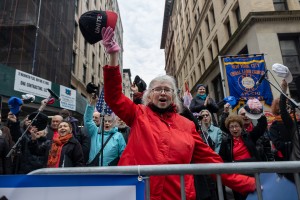Labor leaders, politicians mark anniversary of Triangle Shirtwaist Factory Fire
A commemoration of the 1911 tragedy included speeches from local politicians, and a history of U.S. labor law.
Dozens gathered outside the NYU Brown Building on March 24 to commemorate those lost for the anniversary of the Triangle Shirtwaist Factory fire. (Jason Alpert-Wisnia for WSN)
March 27, 2023
Hundreds gathered outside NYU’s Brown Building on Friday to commemorate the 112th anniversary of the Triangle Shirtwaist Factory fire, the 1911 tragedy that led to historic reforms of U.S. labor protection law. Labor leaders and politicians, including Mark Levine, Manhattan’s borough president, and Christopher Marte, who represents the neighborhood in the New York City Council, gave speeches in honor of those who lost their lives in the fire.
“Every year I come here, I ask myself, ‘What has changed? What has changed since that day?’” Marte said to the crowd. “In many respects, not much. Tens of thousands of women who are former garment workers and are now home attendants have the same sweatshop conditions that these women and children had. Every single day across New York City, immigrant women of color are working 24-hour shifts for 13 hours of pay.”
On March 25, 1911, a fire began on an upper floor of the 10–story Triangle Shirtwaist blouse factory, and quickly spread to other areas of the building. Many workers, most of whom were immigrant women, had no way to escape, as the factory’s management had locked workers inside — historians say this may have been done in an attempt to prevent theft or keep union organizers out. One hundred and forty-six people died in the fire, and the owners of the factory were found liable in a wrongful death lawsuit. The Brown Building, which was the location of the factory, was converted into classrooms and laboratories in the years after the fire, before being formally donated to NYU in 1929.
The Remember the Triangle Fire Coalition, an independent nonprofit dedicated to spreading awareness about the fire and its legacy, organized the commemoration ceremony. According to members of the coalition, a permanent monument to victims of the fire is set to be constructed outside the Brown Building by October of this year.
Members of the coalition have been working to create a physical monument to honor the victims of the fire for over a decade. The yearslong delay in creating the monument has been due to bureaucratic red tape, according to Rose Imperato, the coalition’s vice president. Imperato said that NYU and the Remember the Triangle Fire Coalition have been working together on plans for the memorial for about 12 years, and that architects and engineers recently approved its installation.
Members of NYU’s Contract Faculty Union, which is currently demanding recognition from the university, also attended the event. Elisabeth Fay, a College of Arts & Science professor and an organizer with the union, commended NYU for cooperating in the installation of the memorial, but criticized the university for its treatment of on-campus labor groups.
“I certainly don’t want to ding NYU for cooperating on this memorial, which absolutely should exist and should have the full support of the NYU administration,” Fay said. “If they agree that workplace protections are essential, if they agree that unions are the best way that workers have to protect themselves at work, then I would hope that they would also want to come down and talk to their faculty, who are, I think, correctly and respectfully asking that their collective bargaining rights be respected.”
Lauren Munoz, an NYU student and member of the NYU chapter of the Young Democratic Socialists of America, said she appreciated that speakers acknowledged the role of immigrant women workers, whom she said have been historically overlooked. She added that she hopes the anniversary of the fire encourages more people to learn about the present-day labor movement.
“I grew up in Texas, so the idea of unions just seemed dead,” Munoz said. “Even if I was like, ‘Oh yeah, I’d support them,’ they don’t exist,” Munoz said. “It’s important for people to realize that unions are still going strong, and that there’s a lot of power in them.”
Contact Hope Pisoni at [email protected].

























































































































































